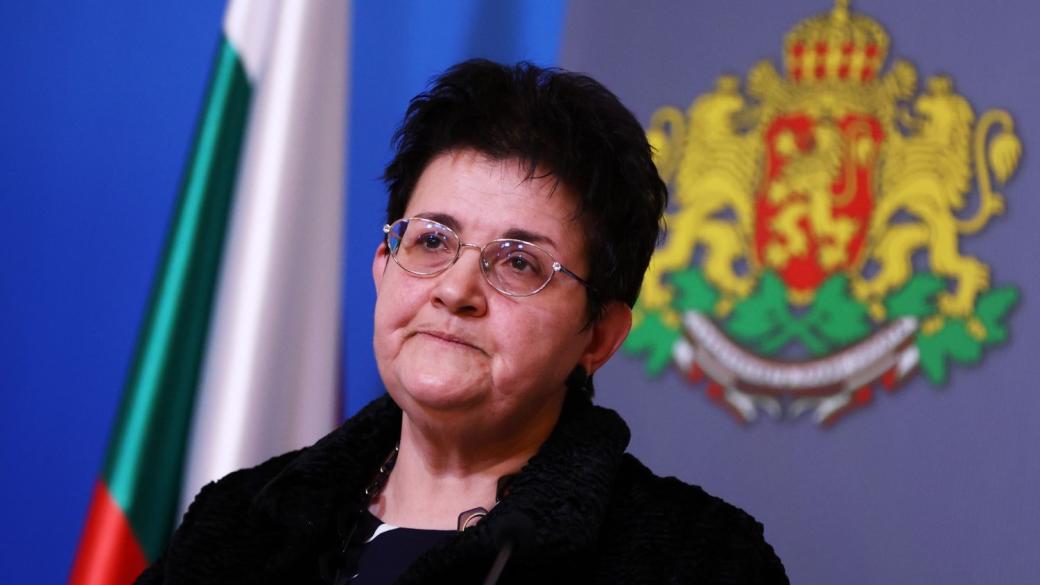The Bulgarian government tries to patch up the lack of 2025 Budget
The caretaker administration proposed to the National Assembly to urgently adopt a new bill, but not one of budget extension

1 Video
© ECONOMIC.BG / BTA
The Bulgarian caretaker government is proposing a new bill to regulate revenue collection and expenditure implementation in the state budget until the National Assembly (NA) adopts the financial framework for 2025. This is one of the decisions that the Council of Ministers (CM) made at its meeting on Monday, December 30.
At a press briefing dedicated to the topic, Interim Finance Minister Lyudmila Petkova specified that the temporary law will be in effect until the state budget, the NHIF budget, and the state social insurance budget are adopted.
The caretaker government is responsible for ensuring that the country is not in "chaos", that there is a legal framework and order, and that the normal functioning of the state is ensured," said Petkova.
She announced that the Council of Ministers is expected to submit the texts to parliament today.
Why was the idea of extending Budget 2024 dropped?
During the briefing, Petkova touched on the topic of extending the 2024 budget - an option that a number of economists and politicians indicated as the best solution, given the still unadopted 2025 Budget. Among the supporters of this idea is the co-chair of the "We Continue the Change" political party, Assen Vassilev.
However, Petkova explained that this is not possible because "the structure of Budget 2024 is different from that of previous years."
There are already laws for increasing the remuneration in the higher education system, defense, and security, which, in the case of an extension of the previous budget, would mean derogating from the actions of said laws," Petkova explained.
According to her, extension laws are not regulated - neither in the Bulgarian Constitution nor in the Public Finance Act (PFA).
The extension law has always been considered a crisis measure," she added.
Legal loopholes
The lack of a new public budget and an extension law for it just two days before 2025 puts the Bulgarian state in a situation in which a number of social payments - including pensions and tax breaks - may not happen because there is no legal basis for the money for these payments to be collected and distributed accordingly.
The Ministry of Finance conducted an analysis that found that there are legal loopholes.
For example, Article 87 of the Pension Fund Act stipulates that revenues are collected in accordance with the current legislation, and expenses are incurred up to the revenue ceiling, but according to Petkova, "the direct application of this article is practically impossible" because the budget laws determine specific amounts of pensions and tax preferences.
Another issue is the lack of principles when it comes to prioritizing spending.
This necessitated the drafting of this law - it proposes the legal framework to guarantee the rights and legitimate interests of citizens related to the payment of social benefits and tax preferences," said Petkova.
Expenditures for pensions, social benefits and salaries will be considered a priority, and the remaining items will be proportionate to the remaining revenues.
With regard to capital expenditures, it is proposed that they be made by decision of the Council of Ministers, because in Budget 2024 they were not set in the accounts of the relevant primary budget spending units, but were instead included in the annexes for the various ministries, departments and municipalities.
It's not illegal, it's just not regulated...
Days before the Christmas holidays, former Finance Minister Assen Vassilev outlined an apocalyptic picture for the state finances if at least an extension law was not adopted.
According to him, the lack of this law means that the state administration will not be able to pay pensions and tax breaks at all, and the maximum pension paid would fall from its current level of 3,400 leva to 2,250 leva because the National Social Security Institute will not have the legal basis to provide the higher amounts.
Simply put, if there is no new budget, according to the PFA, payments in the new year must be made based on current legislation. However, the budgets for the State social security and the healthcare system are only valid until the end of 2024, which means that both systems will start the new year without new regulations.
However, Petkova assured the public that the minimum pension will remain at its present level because it follows the current legislation.
The minimum pension will be paid as it was for 2024, and if there is any adjustment necessary after that, it will be made. People will not be left without pensions. It is not illegal, the issue is that it is not currently regulated," said the finance minister.
At the same time, the minimum wage (MW) of 933 leva (468 euros) for civil servants will stay, as determined by the State Budget Act. However, the private sector will be forced to increase it to 1,077 leva (534 euros).
All resulting differences will be equalized with the 2025 budget. We have had similar cases with extension laws in previous years," Petkova reassured.
Restaurant owners will have to pay the higher VAT rate, according to other news from the briefing, because the VAT Act states that the current rate of 9% for restaurants and 0% for flour and bread is only valid until December 31, 2024.
Translated by Tzvetozar Vincent Iolov

 Simona Gotsova
Simona Gotsova 


